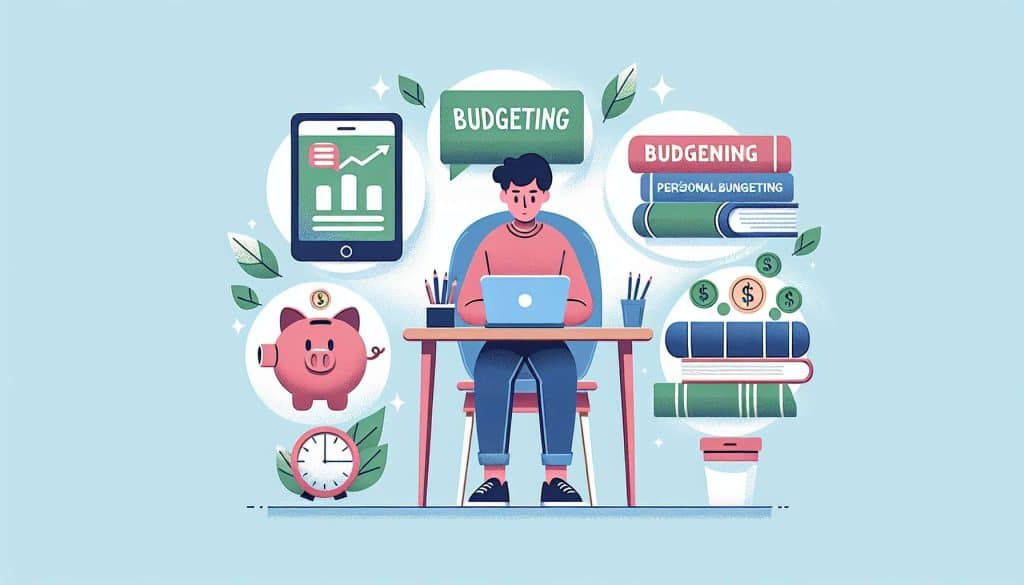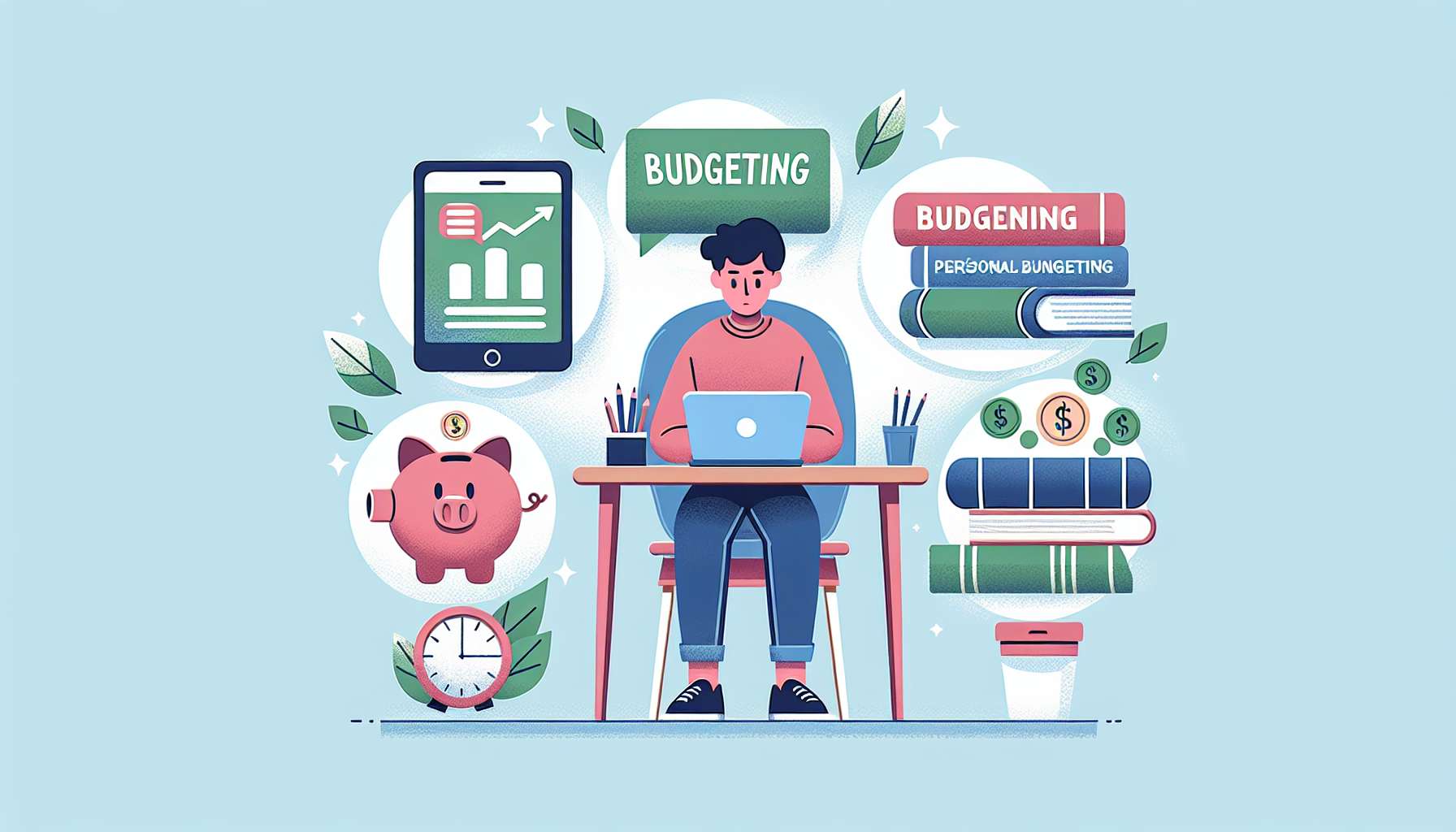Beginner’s Guide: Mastering Personal Budgeting & Achieving Financial Freedom

Anúncios

Mastering the Art of Personal Budgeting
In today’s rapidly evolving financial landscape, mastering personal budgeting is more important than ever. With the constant influx of expenses and the allure of consumer spending, having a structured budget can make the difference between financial stress and security. Personal budgeting empowers individuals to understand their financial standing, allowing them to make informed decisions, cut unnecessary costs, and allocate resources effectively towards their financial goals.
This article delves into the nuances of personal budgeting, offering insights and strategies that cater to both novices and seasoned budgeters. Whether you’re aiming to pay off debt, save for a significant purchase, or simply gain better financial control, the principles of effective budgeting remain crucial. Our aim is to equip you with practical advice to navigate your finances with ease and confidence, ultimately guiding you toward a future of financial independence and stability.
Understanding personal budgeting is akin to learning the fundamentals of any other crucial life skill. It’s about developing a system that governs the flow of money in and out of your household. Like a well-oiled machine, a successful budget ensures every financial cog works in harmony, leading to optimal financial health. Through this guide, we explore the essence of budget management, its long-term benefits, and ways to adapt your budget to life’s ever-changing circumstances.
Anúncios
Understanding the Value of Budgeting
Personal budgeting isn’t merely a financial exercise; it’s a roadmap to achieving your aspirations. A ceiling on unnecessary expenses facilitates a healthy accumulation of savings, which can be directed towards specific goals like buying a home, traveling, or securing retirement. The process of budgeting enhances your financial IQ, fostering a proactive approach to spending decisions and financial habits that align with your objectives.
Budgeting awareness is pivotal in identifying spending habits that may seem mundane but significantly affect your savings over time. By monitoring every purchase, you empower yourself to make informed financial decisions. It also guides you in setting achievable goals, like building an emergency fund that acts as a safety net for unexpected expenses. Ultimately, budgeting minimizes debt and fosters a sustainable lifestyle.
Financial independence achieved through budgeting fosters not just a healthier bank balance but peace of mind. Navigating your budget effectively means being prepared for life’s surprises, reducing debt stress, and avoiding the pitfalls of financial mismanagement. It’s about more than just managing numbers; it’s about creating a path to a stress-free financial future. With consistent effort and discipline, budgeting transforms financial anxiety into financial confidence.
Anúncios
Key Characteristics of Effective Budgeting
- Assessment: Understand your income and expenses for clarity.
- Goal Setting: Define precise short-term and long-term targets.
- Method Selection: Choose a budgeting method that fits your lifestyle.
- Spending Tracking: Monitor expenses to stay on course.
- Adjustment: Regularly adapt your budget in response to financial changes.
The Benefits of Personal Budgeting
Budgeting reaps numerous rewards, the foremost being an enhanced awareness of personal finances. By systematically reviewing your financial activity, you identify and eliminate wasteful expenditures, making room for savings that fuel your goals. Additionally, effective budgeting encourages setting realistic financial objectives, guiding you to prioritize essential spending over fleeting wants and aligning your resources toward achieving these benchmarks.
Regular budgeting strengthens financial resilience. One of its most significant benefits is preparing for life’s unforeseen events—be it job loss, medical emergencies, or home repairs—through an established emergency fund. Cultivating this discipline shields you from reverting to debt in challenging times, allowing you to maintain financial equilibrium without derailing progress toward your long-term ambitions.
Furthermore, budgeting minimizes debt dependency. By outlining clear, actionable steps toward paying off existing debts, you significantly reduce interest burdens and improve credit scores. This proactive approach bolsters financial credibility, equipping you with leverage for future financial ventures, such as loans or investments. Ultimately, personal budgeting is a tool not just for managing current finances, but for building a bedrock of lifelong financial stability.
In practice, personal budgeting simplifies complex financial decisions, giving clarity and perspective when navigating various financial aspects. Through consistent budgeting, you experience the peace that comes from knowing you’re well-prepared for both planned and unexpected life events. With a solid budget in place, moments of financial strain transform into opportunities for mindful financial action.
- Financial Awareness: Gain insight into spending habits for better management.
- Goal Fulfillment: Methodically work toward and achieve financial goals.
- Debt Management: Regularly allocate funds toward reducing debt burdens.
- Preparedness: Build a financial safety net for unexpected situations.
- Mindful Living: Embrace a financially disciplined lifestyle for future peace.
Mastering personal budgeting is not an overnight achievement. It requires ongoing diligence, a readiness to adapt to new financial landscapes, and a steady commitment to the principles of responsible financial management. Each step taken in mastering personal budgeting is a step toward securing your financial wellness, paving a smoother path to realizing your dreams and aspirations.





